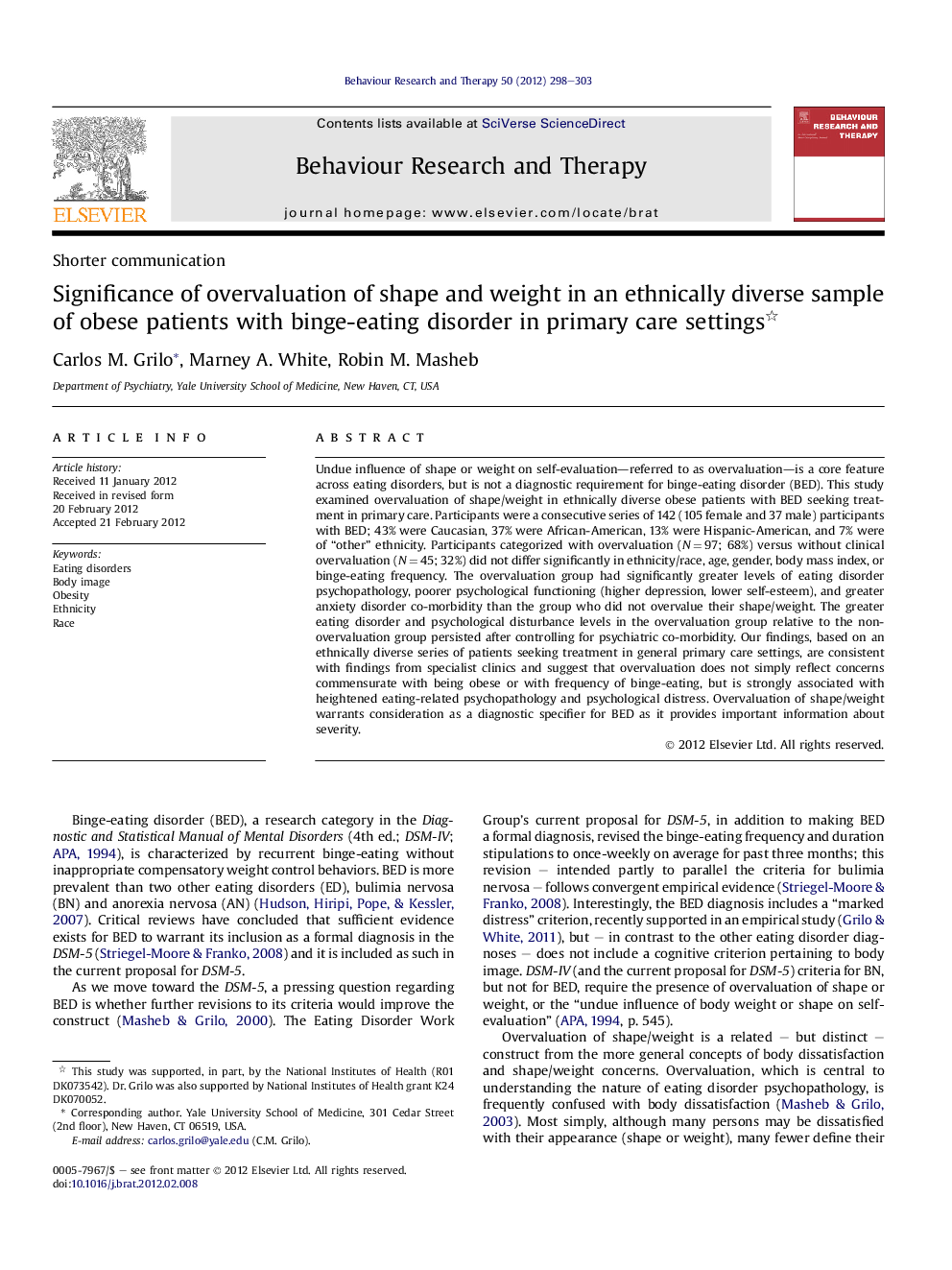| Article ID | Journal | Published Year | Pages | File Type |
|---|---|---|---|---|
| 901988 | Behaviour Research and Therapy | 2012 | 6 Pages |
Undue influence of shape or weight on self-evaluation—referred to as overvaluation—is a core feature across eating disorders, but is not a diagnostic requirement for binge-eating disorder (BED). This study examined overvaluation of shape/weight in ethnically diverse obese patients with BED seeking treatment in primary care. Participants were a consecutive series of 142 (105 female and 37 male) participants with BED; 43% were Caucasian, 37% were African-American, 13% were Hispanic-American, and 7% were of “other” ethnicity. Participants categorized with overvaluation (N = 97; 68%) versus without clinical overvaluation (N = 45; 32%) did not differ significantly in ethnicity/race, age, gender, body mass index, or binge-eating frequency. The overvaluation group had significantly greater levels of eating disorder psychopathology, poorer psychological functioning (higher depression, lower self-esteem), and greater anxiety disorder co-morbidity than the group who did not overvalue their shape/weight. The greater eating disorder and psychological disturbance levels in the overvaluation group relative to the non-overvaluation group persisted after controlling for psychiatric co-morbidity. Our findings, based on an ethnically diverse series of patients seeking treatment in general primary care settings, are consistent with findings from specialist clinics and suggest that overvaluation does not simply reflect concerns commensurate with being obese or with frequency of binge-eating, but is strongly associated with heightened eating-related psychopathology and psychological distress. Overvaluation of shape/weight warrants consideration as a diagnostic specifier for BED as it provides important information about severity.
► Overvaluation of shape/weight is considered a core feature across eating disorders. ► Overvaluation is associated with greater eating psychopathology and psychological problems. ► Overvaluation warrants consideration as a diagnostic specifier for BED in DSM-5.
